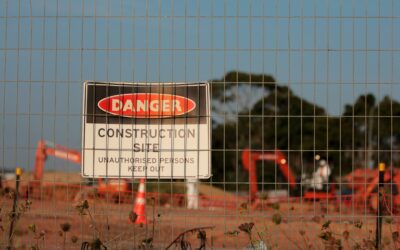COVID-19 outbreaks have impacted agricultural businesses around the world. In several states, public health departments can now link several hotspots with meatpacking plants where workers functioned within close proximity of one another.
If more than one worker at your clients’ business becomes ill, a better case for work-relatedness can be made. Work-related transmission is more likely to lead to workers’ compensation claims and, potentially, OSHA complaints and inspections.
Agribusiness and COVID Workers Compensation Claims
Because agriculture is a core part of the nation’s infrastructure, there’s little wiggle room to reduce working hours or shift cover without seeing negative impacts on the food supply. Still, your agricultural clients may have a responsibility to report positive COVID-19 cases to OSHA, and they have a moral obligation to limit the spread of the disease.
Many states expanded workers’ compensation programs to include COVID-19. In California, all existing workers’ compensation policies cover COVID-19 between March 19 and July 5, 2020, and it’s not out of the realm of possibility for this to continue as the number of cases grows across the country.
The rule of thumb for workers’ compensation claims is this: evaluate a COVID-19 case as if it’s any other potentially work-related illness. If an employee wants to file a claim, employers should do so. In the context of COVID-19, it is better to file a claim and receive a rejection than to fail to file a valid claim at all.
Here are five steps to investigating work-relatedness when multiple employees contract COVID-19 at the same time:
Investigate Work-relatedness Regardless of Presumption
One of the reasons communicable diseases don’t traditionally qualify for workers’ compensation claims is because it’s very difficult to prove the work-relatedness of a flu outbreak. The same is true of COVID-19, which is why some states, including California, added COVID-19 as a temporary presumption for all workers’ compensation policies.
Whether or not your state adds COVID-19 as a temporary or permanent presumption, determining work-relatedness is still important. Although investigations become more difficult every day the virus spreads, your first case can quickly snowball.
The businesses’ role is to make a reasonable effort to determine work-relatedness without violating the employee’s privacy. Some of the questions they may ask include:
- Do you know where you might have been exposed to COVID-19?
- When did you first experience symptoms of COVID-19?
- Have you participated in work or nonwork activities that could lead to exposure?
As a reminder for carriers, agents, and business operators: employers are not required to dig into the employees’ private life to carry out their investigation. Rather, it is vital to work with the information at hand. After all, the goal is to determine whether the cases are the product of contact at work.
For example, you also shouldn’t ask an employee who is COVID-19 positive if a member of their household also has a positive diagnosis. Doing so veers into protected private health information. If the employee was exposed at home, they will likely indicate the fact on their own.
Employee Housing and COVID-19 Transmission
Agricultural businesses are also in a unique position because they are more likely than other industries to provide housing to groups of workers. While this is an opportunity for the business to minimize exposure if they group those who share accommodation together on the same shifts, it will be harder to issue a rebuttal because the line between work and home becomes blurred.
In addition to gathering data from the impacted worker, agricultural businesses will also need to examine work-only factors, such as whether other employees in their work area have confirmed cases and what their working conditions are like (i.e., if social distancing is possible, availability of PPE). As a rule of thumb, if more than one worker working or living in close proximity tests positive for COVID-19, a better case for work-relatedness can be made to OSHA and to the carrier.
Investigations are more straightforward if your client has a strong prevention program in place that includes:
- Providing adequate PPE
- Enlisting contact tracing
- Scheduling employees in groups to minimize the number of people they interact with
- Ensuring proper hygiene and social distancing measures where possible
- Providing basic information about prevention to all workers in languages they understand
These are the minimum steps required to prevent a single case that comes in from elsewhere from becoming a work-related outbreak. Both OSHA and the CDC have full guidance available. It is worth disseminating this to your clients.
Note: Find OSHA’s January 29, 2021 guidance here.
Review and Compile Documentation
As with the investigation, reviewing documentation and evidence is much simpler if the agricultural business has a well-documented safety program in place. As noted, both OSHA and the CDC provide guidance on employers’ obligations related to COVID-19, regardless of their sector.
Some of the documents you may need include:
- Workplace illness report
- COVID-19 assessment and control plan
- Contact tracing documents
- Worksite assessment reports
- Safety meeting schedules and minutes
- Inspection schedules and reports
- Maintenance schedules and reports
- Communications with state and local public health officials
- Communications with occupational safety and health professionals
Again, typical guidance suggests treating COVID-19 as you might any other workplace-related illness, at least in terms of documentation.
Prevent Further Spread
Once your client has a single documented case of COVID-19, they have an increased legal obligation to prevent further spread, including a renewed effort from OSHA.
Again, this includes state and federal agency guidelines and shoring up any potential holes in their prevention and protection programs.
From an administrative point of view, your clients have two main emphases:
- Assessment of current safety guidelines
- Better monitoring and enforcement of safety guidelines
- Improved recordkeeping
Because COVID-19 is so contagious, a robust internal contact tracing program is also vital to your client’s success in monitoring and preventing the spread of the disease. It will be rare for your agricultural clients to have an isolated case, so it’s smart to ramp up protection, hygiene, and tracing programs in a way that assumes there is a full-blown outbreak.
Report Illnesses to Their Carrier or Broker Immediately
As soon as the first test comes back positive, your clients should know the importance of contacting you, their broker or getting in touch with their workers’ compensation carrier. Together, you’ll work to complete the appropriate insurance paperwork.
Every state has its own reporting deadlines, so remind your clients of their respective cut-off date and reiterate the importance of reporting immediately. Even when COVID-19 is covered by workers’ compensation insurance, employers’ liability is still open in certain cases, (i.e., if the employer failed to provide PPE or if the employer allowed positive cases to work directly with their co-workers). So, encourage them to come to you ASAP.
Respond to Whistleblower Complaints Appropriately
Several lawsuits have already been filed as a result of employers’ alleged failures to protect employees. A whistleblower complaint can happen to anyone, particularly in this heightened climate, so it’s important for employers to be prepared, especially in the face of an outbreak or multiple cases.
If a whistleblower goes to the press, the state, or OSHA, your client should not retaliate. Instead, they must follow the steps above (investigate, document, and prevent) just as they would if no one reported.
You may find it helpful to prepare a document reminding businesses of the appropriate way to handle a whistleblower and disseminate it among your clients.
Your Client’s Response Protects Their Future
Agriculture is a core part of our nation’s infrastructure. Scaling back, shutting down, and home delivery aren’t options for farmers, producers, and manufacturers. The need to continue production at the same rate and in largely the same way has also made some agricultural businesses COVID-19 hotspots.
If a COVID-19 outbreak occurs in an agricultural business, the general advice is to treat it as a potential work-related illness, particularly in states like California where COVID-19 is listed as a presumption.
In simple terms, treating COVID-19 as if it’s a potential work-related illness means investigating the outbreak, preparing and compiling documentation, and preventing the spread of the disease are your clients’ top priorities. Don’t forget that you have a role to play as well: as soon as the first case arises, your agricultural clients need your help to navigate the maze that is workers’ compensation claims.



